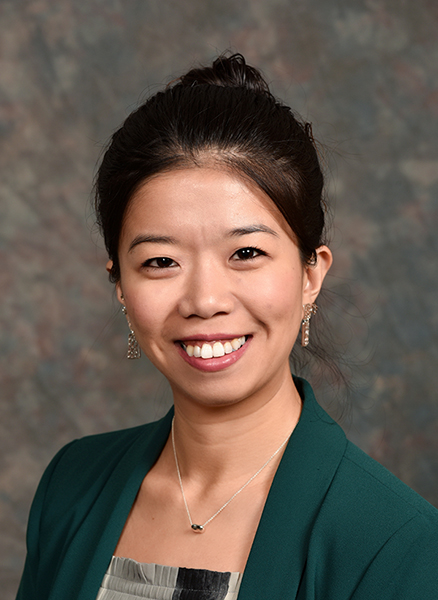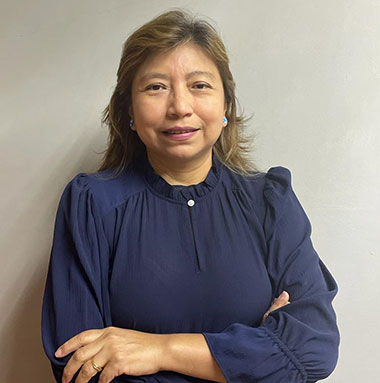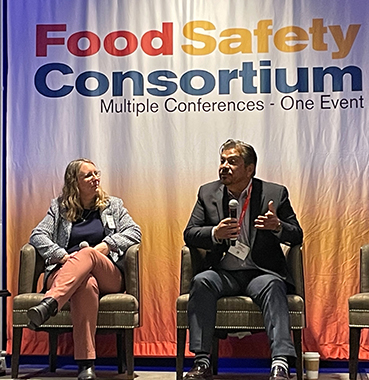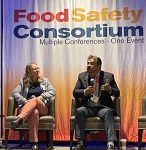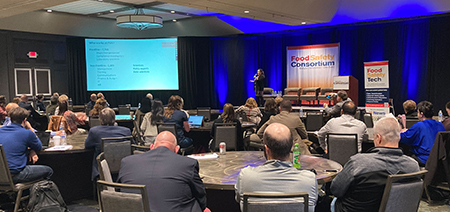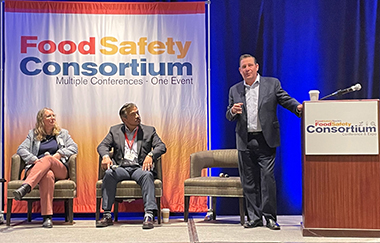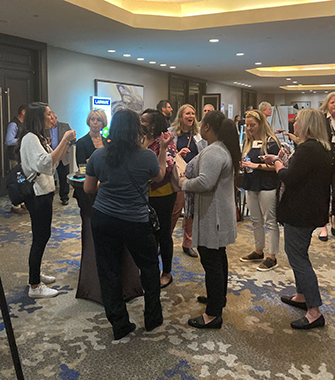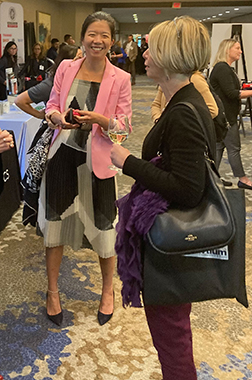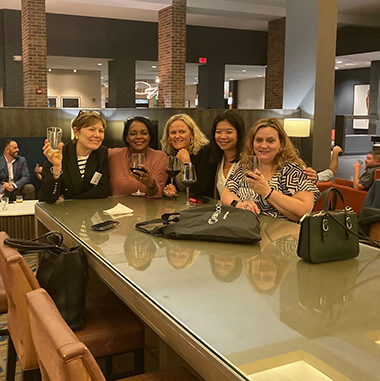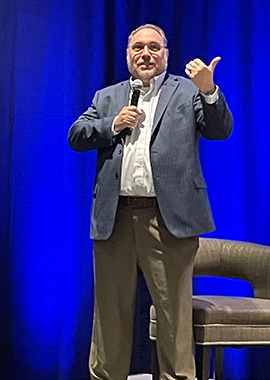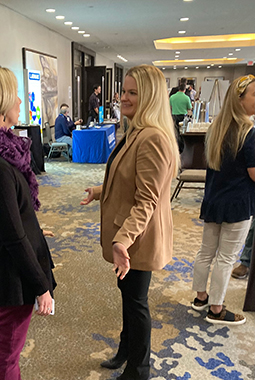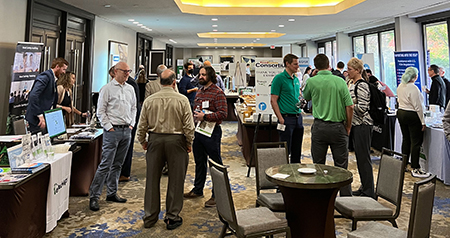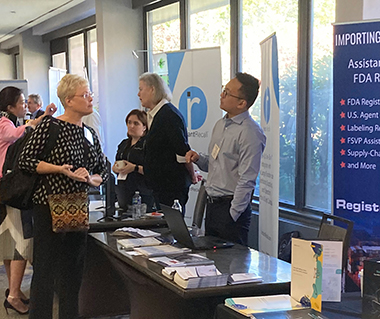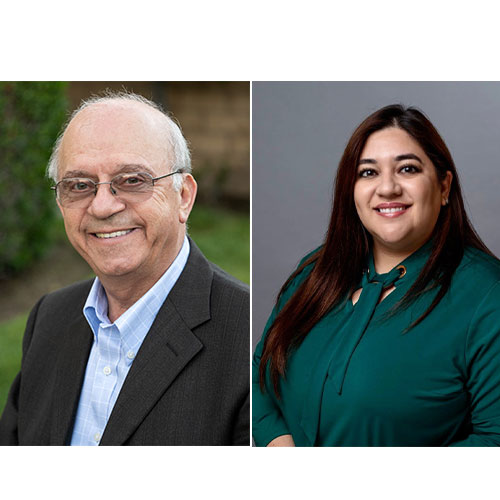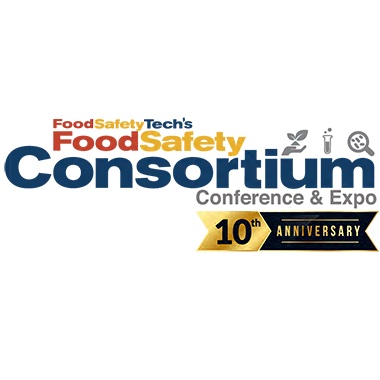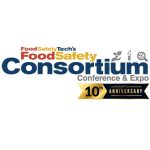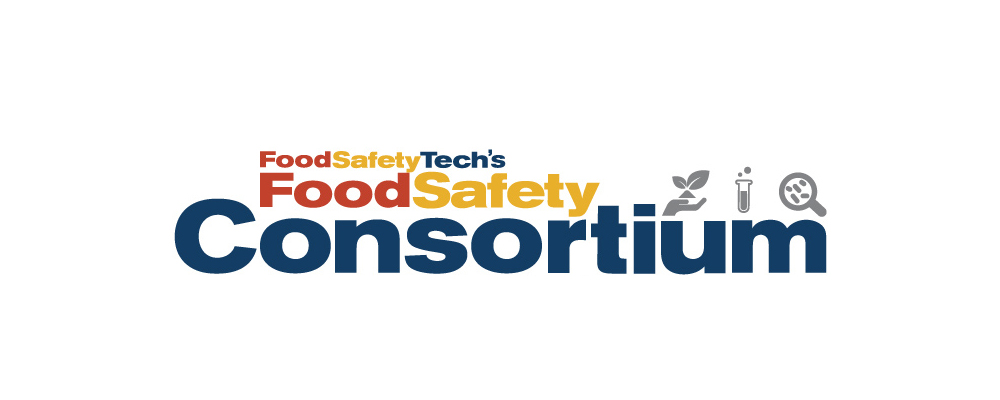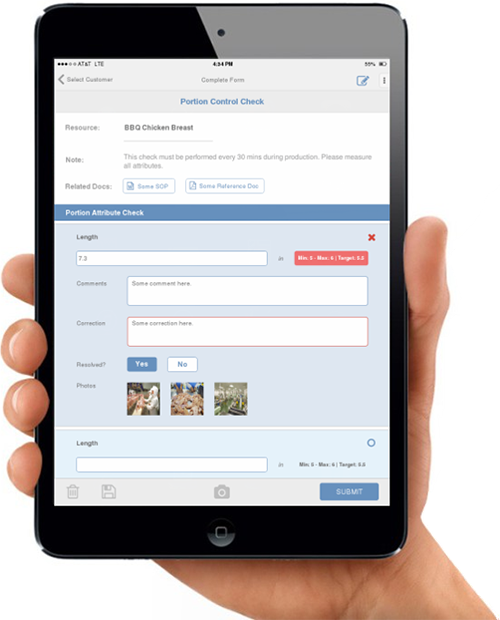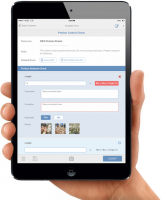Last month, the Food Safety Tech team wrapped up a very successful Food Safety Consortium Conference. While I could name drop many of the who’s who of food safety who presented this year, Erik Mettler, Assistant Commissioner for Partnerships and Policy in the FDA’s Office of Regulatory Affairs, gave a great keynote address in tandem with Sandra Eskin, Deputy Undersecretary for Food Safety at USDA FSIS. Erik stayed for the full conference and participated in two additional panel discussions, one on Succession Planning and the second on Recalls. Sandy stayed for two days and made herself accessible to the delegates.
As the conference director I’m also the emcee. I introduce the speakers and panelists, but I also have the opportunity to be a participant and observe the interplay between delegates. What I observed at the Consortium was great networking, conversations and mentoring but what really stood out was a real energy among the delegates, something I haven’t seen at any food safety conference in the last few years. I believe that energy is an indicator that FSQA (food safety and quality assurance) is coming back from the devastation and impact of the Covid-19 pandemic.
For example, on the topic of FSQA auditing and inspections, Covid significantly reduced the amount and type of internal and supplier audits as well as FDA inspections. Many auditors who were independent contractors just quit. They moved on because there was no work. This left a huge void in trained and experienced auditors.
Our session on Succession Planning for Inspectors and Auditors included panelists from government, academia, industry and industry associations. They discussed the increase in inspections and audits coming in 2024 and thus, the real need to fill the void in inspectors and auditors left from the pandemic, as well as the need to train and nurture those folks.
Another theme at the Consortium was the continued evolution of Food Safety Culture. Delegates were looking for ways to take Food Safety Culture to the next level and apply metrics to it. We did a post conference survey, and the feedback we received supports this. Here are some of the direct responses:
Q: What were your top takeaways from the Food Safety Consortium?
- Transparency from regulators and ways to foster growth and culture.
- Food Safety Culture is in the forefront, as evidenced by the numerous panels. I attended nearly every one pertaining to this subject. It is a difficult subject because it is subjective and difficult to measure and quantify.
- Food Safety Culture is ever evolving and becoming a more important factor every year. We need a new system but are unwilling to scrap or majorly overhaul the current one … FSMA was supposed to drastically reduce foodborne illness incidents. It doesn’t seem to be working, and we are nearing the time for FSMA 2.0. While it doesn’t appear that we are getting better at reducing the number of incidents, we are getting better at detecting them.
Q: What Topics should we plan for next year’s Food Safety Consortium?
- Updates from the FDA and USDA on current projects
- How to demonstrate Food Safety Culture. How to build a program and maintain momentum was discussed this year. But how do we show results to auditors? We need guidance and expertise on proving a solid FSC to auditors.
My takeaway from this year’s Food Safety Consortium is that the FSQA community is on the cusp of a resurgence in activity, training and investments—like a Phoenix rising from the ashes of Covid. But even before the pandemic, there was an overall sense of FSMA and GFSI fatigue. I am seeing a collective increase in FSQA activity that has not been present in many years, and that’s a good thing!
In 2024, we will see accelerated digital transformation. Data analytics will play a greater role in FSQA strategies. Getting an entire industry and supply chain ready for FSMA 204 in two years will be a huge undertaking. Also, Food Safety Culture will evolve to provide metrics and data for accountability.
Food Safety Tech continues to publish original weekly articles on these emerging trends. We are introducing a new FSQA Auditor Training program in Q1, and next year’s Food Safety Consortium conference will be held October 20-22, 2024, in Washington, DC, continuing the conversations, debates and discussions.
You can be part of this new wave of FSQA energy by contributing an article to Food Safety Tech or submitting an abstract for the 2024 Food Safety Consortium conference.
This new wave of energy has inspired me. It’s been a while since I last wrote this column, way too long. And FSMA 2.0, that will be the subject of a future column. Also, I’ll share my thoughts on the new food safety agency, our new podcast partners from Don’t Eat Poop and many other topics. Until next time…
All the best!
Rick Biros, Founder, Publisher, Conference Director



